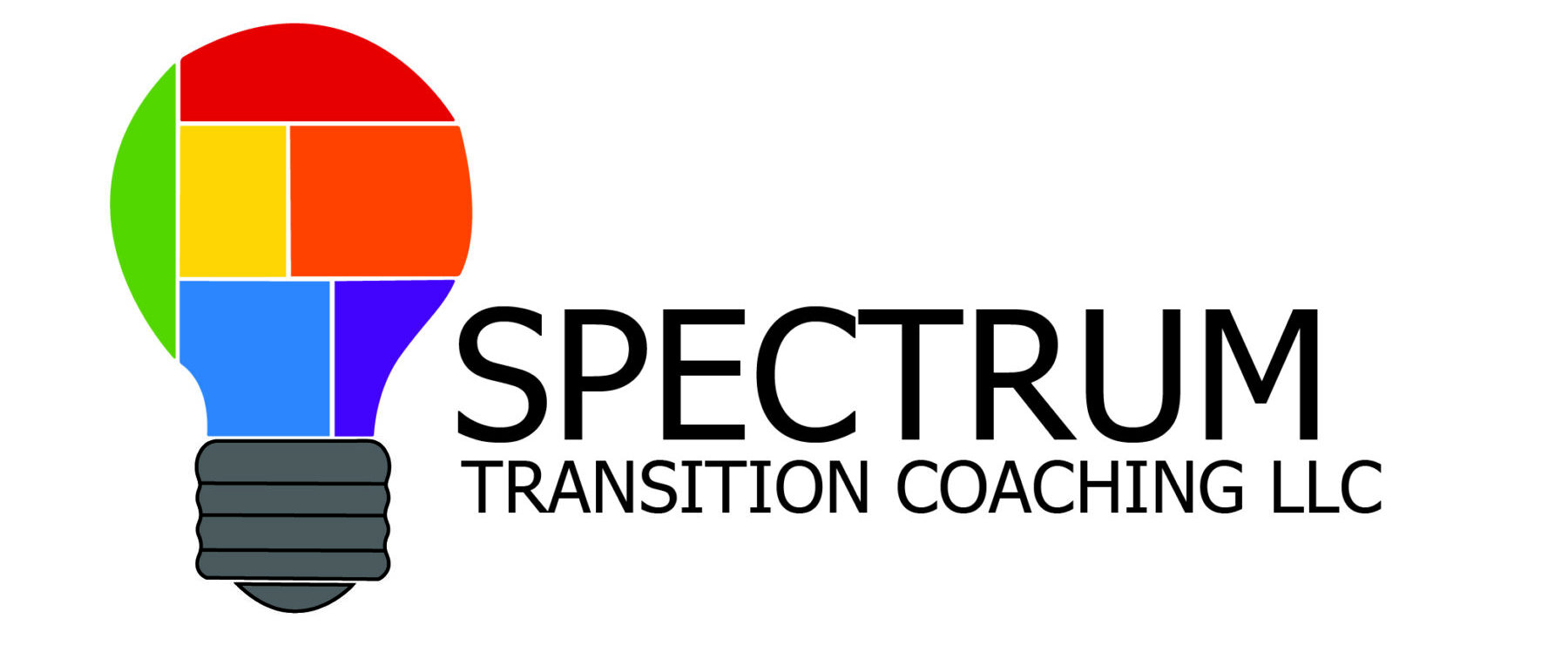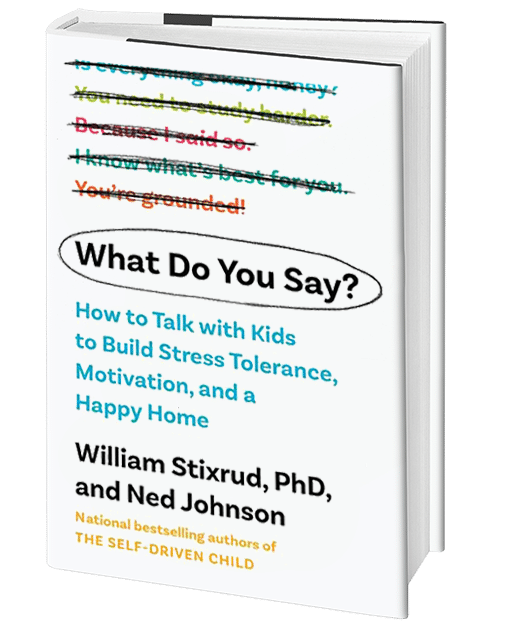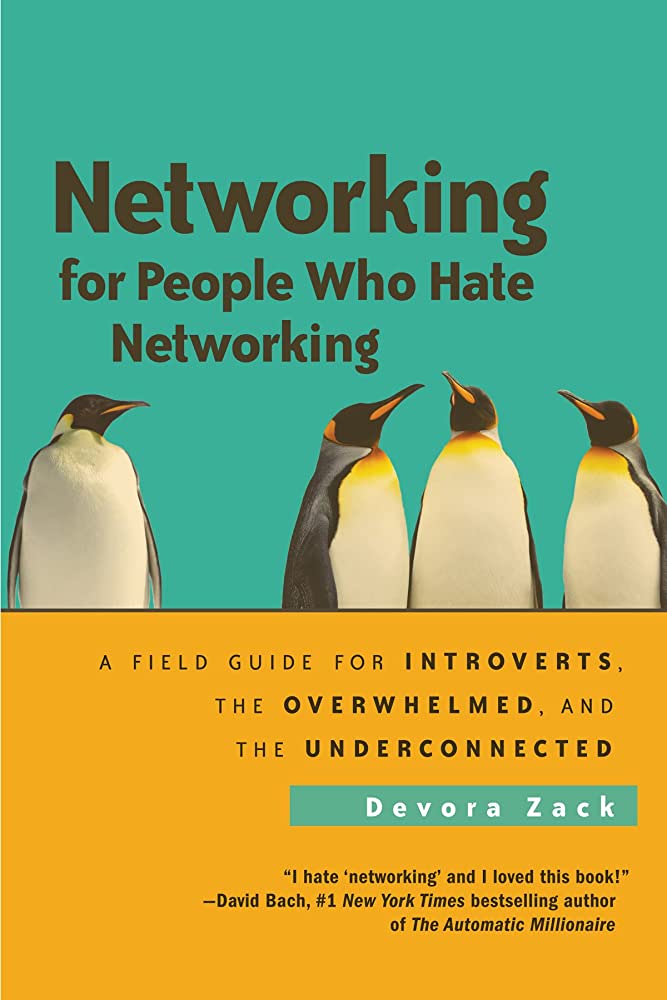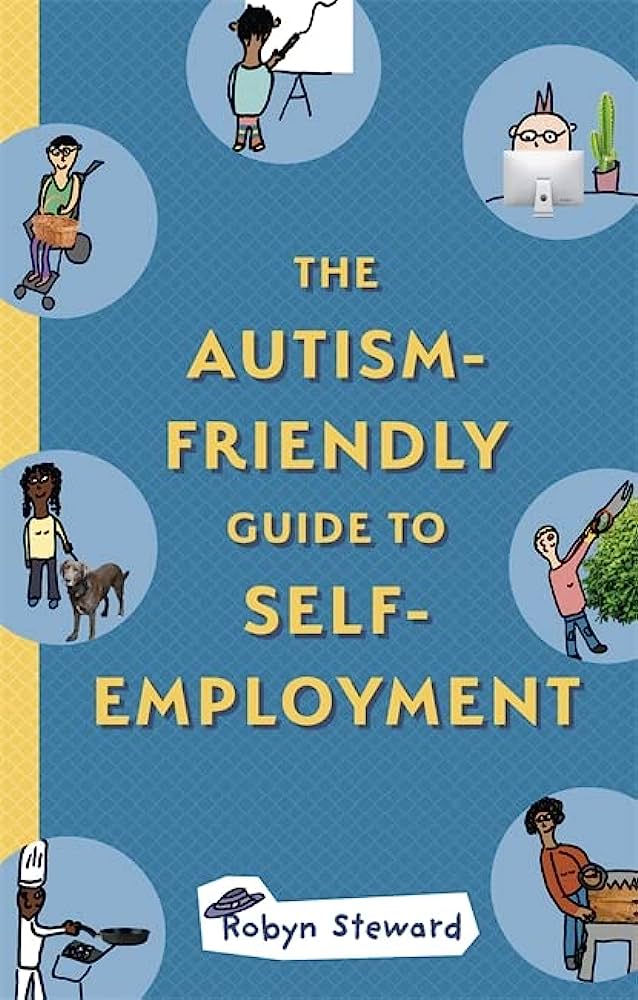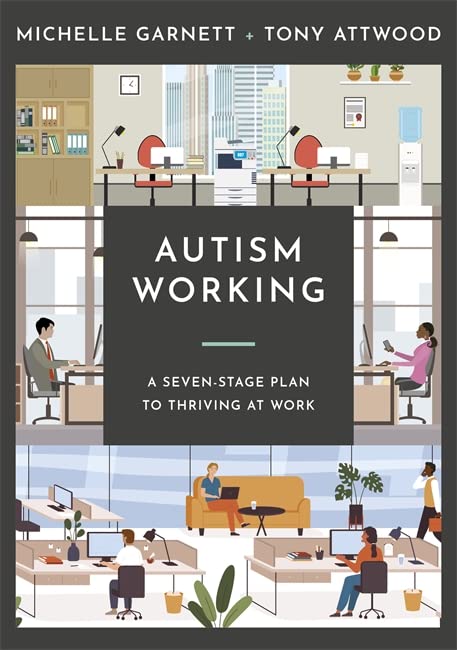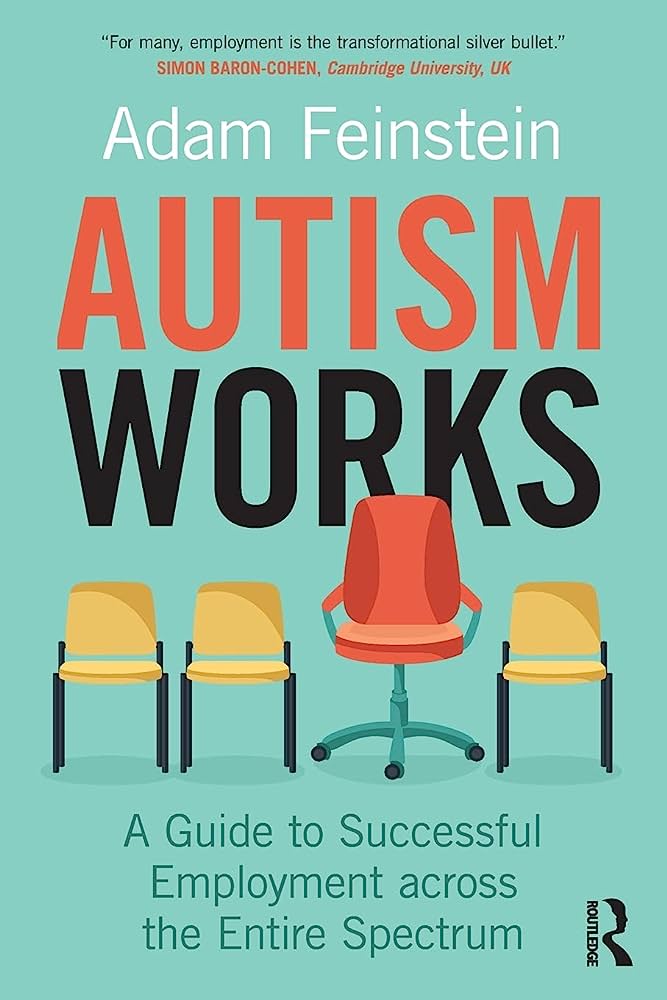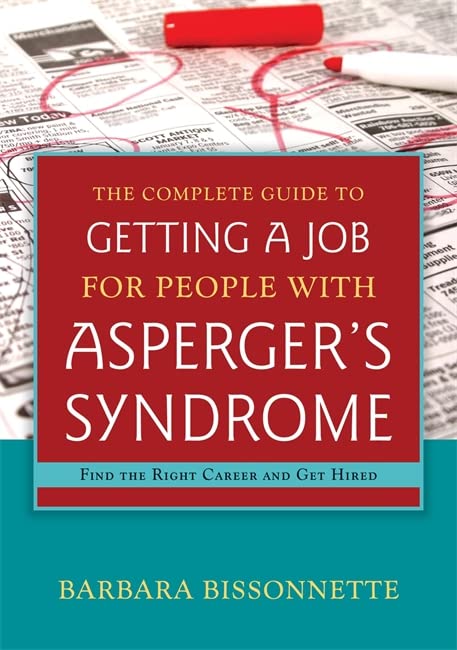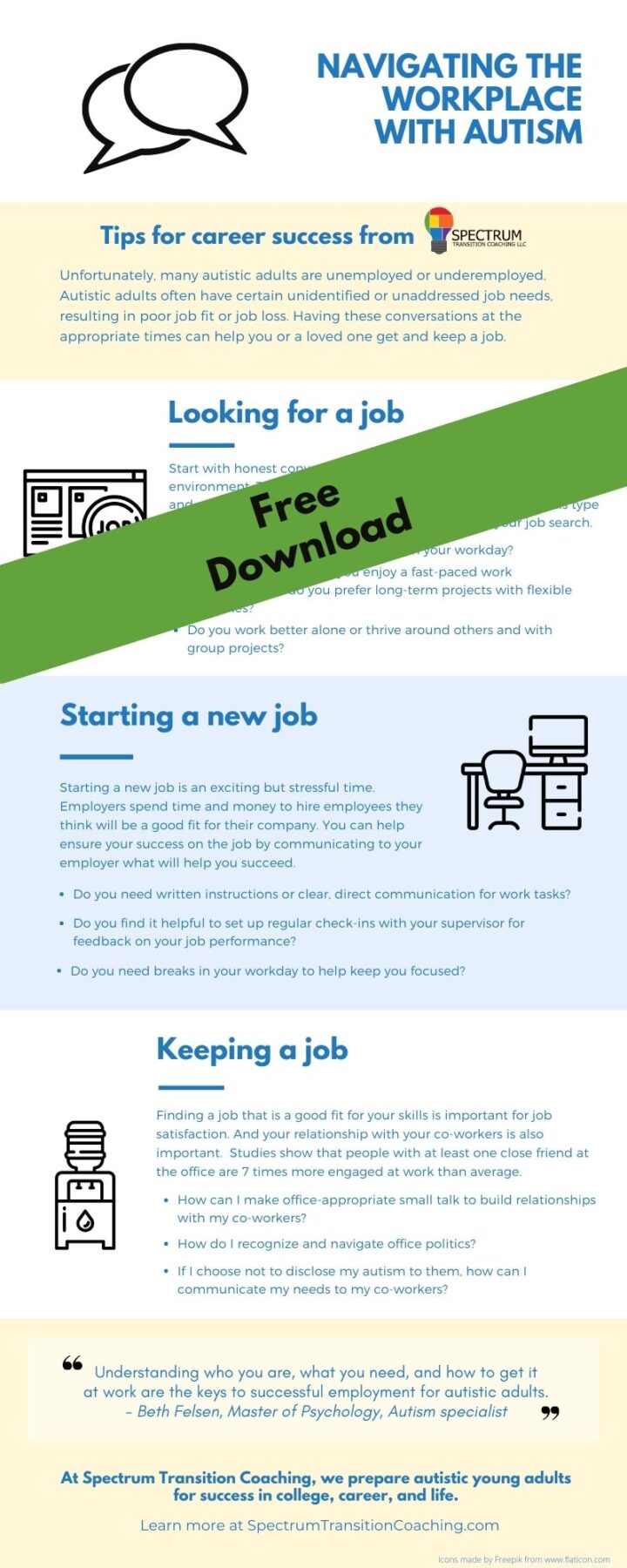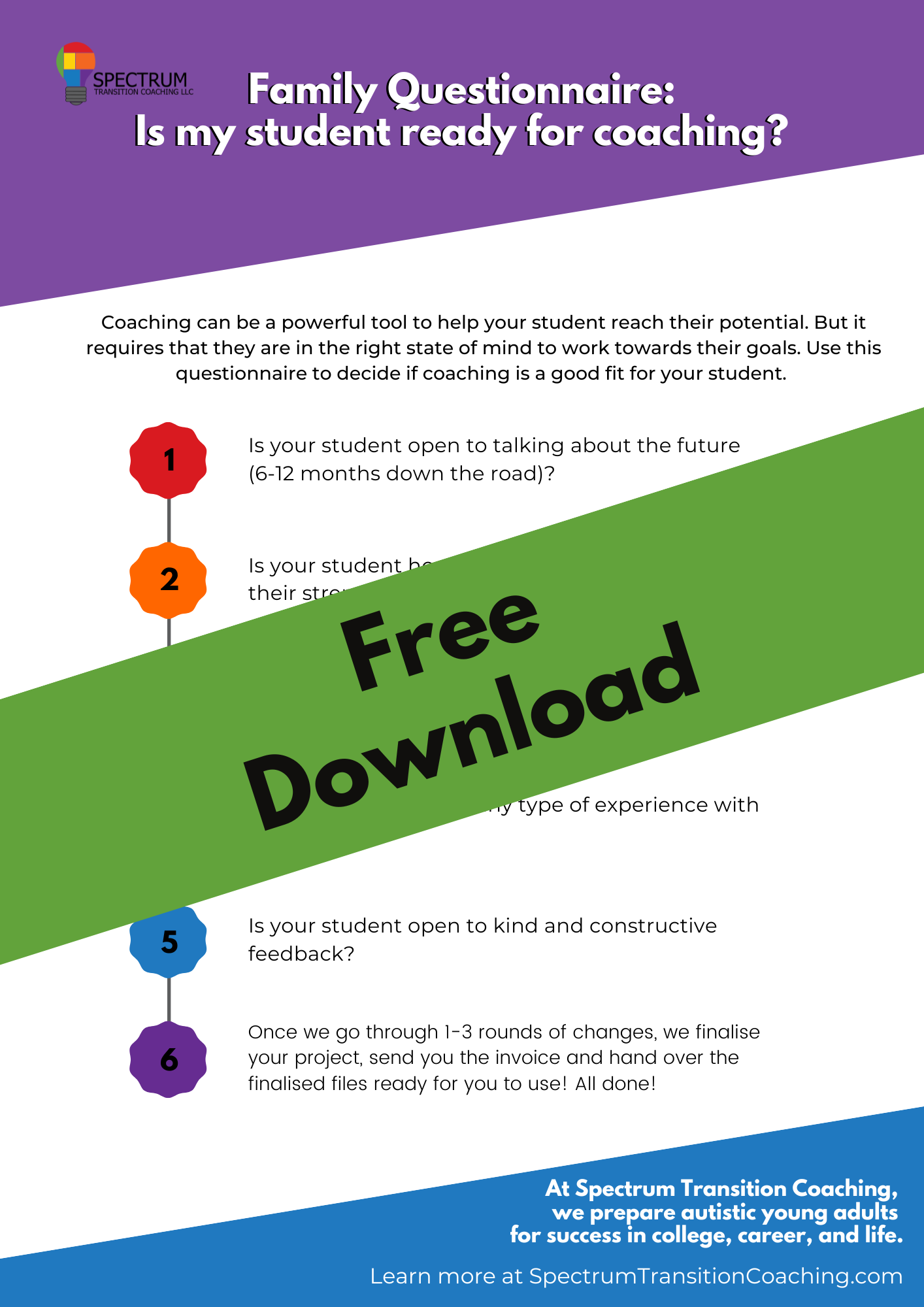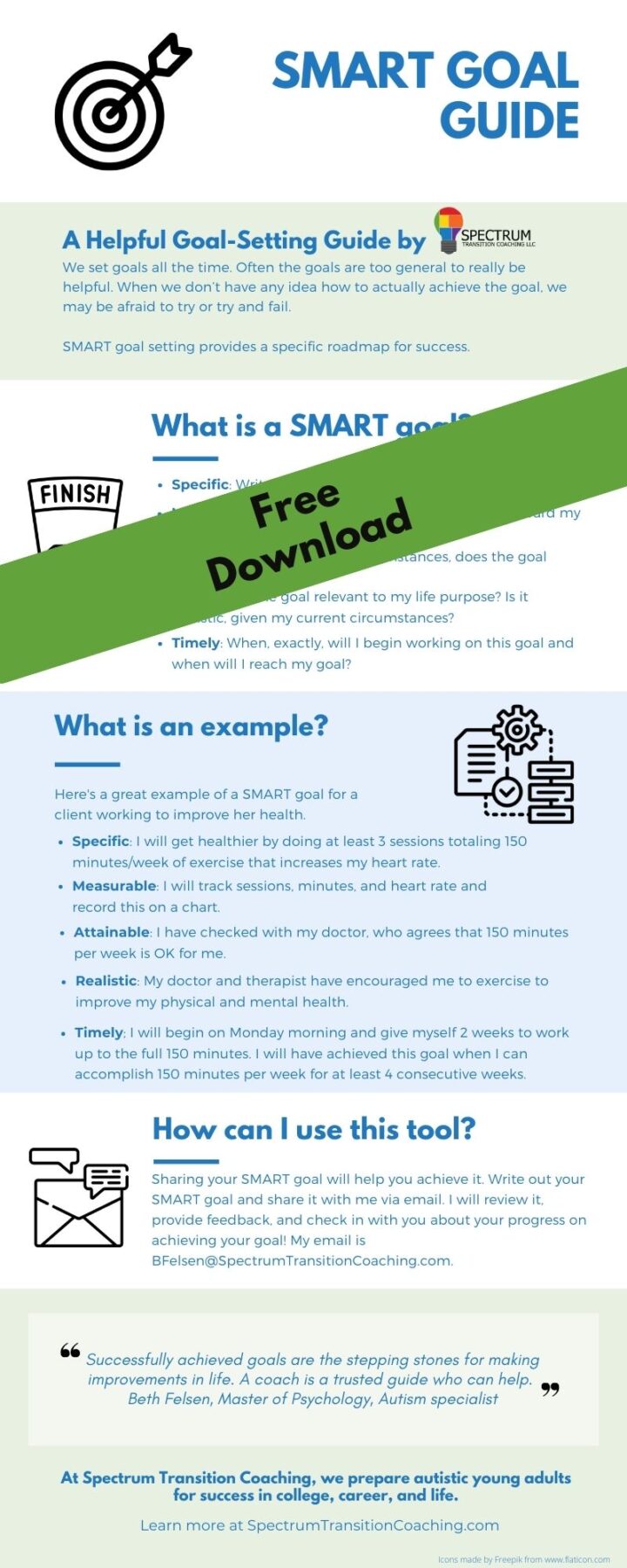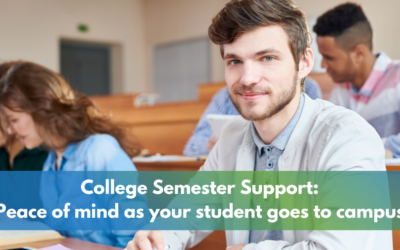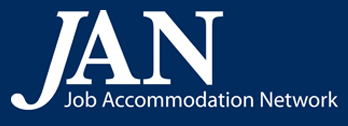The Ultimate Guide for Parents of Autistic College Students
By Spectrum Transition CoachingCollege is an exciting and important phase of an autistic student’s life. Full of possibility, the college experience can broaden your student’s horizon in meaningful ways. It’s also their first taste of independence and adulthood.
For others, college can be a time of instability. The unfamiliar environment and lack of supports can be difficult to manage, resulting in a negative or short-lived college experience.
Whichever path your autistic student ends up on, you’re in the right place. We’ve compiled the best resources, blog posts and guides to help your family navigate the collegiate years.
Who We Are and What’s Inside
Recommended reading
We’ve read piles of books on autism and parenting to narrow down the most useful for your family.
Helpful blog posts
Some of our most popular blogs about college life with autism.
Conversation guides (free downloads)
Useful prompts to connect with your young adult as your relationship evolves.
Employment resources
Job boards and resources for neurodivergent college students looking for internships or full-time work.
There are so many paths after high school graduation – 2 year college, 4 year college, community college, working, volunteering or a gap year. You’ll find the right direction that fits your student’s needs, interests and personality.
– Coach Beth
Recommended Reading
If your family is new to the autism community, welcome! You’ll also want to check out our reading list after a recent diagnosis here.
Important note: I find each of these books to have valuable information for parents of autistic young adults. However, they do cover some controversial topics which may not align completely with my personal views. As always, read thoughtfully and decide what is best for your unique family.
What Do You Say? How to Talk with Kids to Build Stress Tolerance, Motivation, and a Happy Home
By William Stixrud, PhD, and Ned Johnson
The underlying premise of What do You Say? is that empathy and validation are the keys to communication. The authors explain that when parents ask: “how do I motivate my kid?” they are really asking “how do I get my kid to change” Most people are resistant to change. And parents need to realize that it is IMPOSSIBLE to force people to change. This book can help parents learn tools to help their kids feel better about change. These tools include:
– Reflective/empathetic listening
– “Parent as consultant” communication
– Parents as a non-anxious presence
– Motivational interviewing
Networking for People Who Hate Networking: A field guide for introverts, the overwhelmed, and the underconnected
By Devora Zack
Traditional perceptions of networking can feel at odds with your autistic student’s personality. This book excels at explaining how you can ‘network’ in creative ways that feel true to who you are.
Building a network of people invested in your success is important to your career. But mingling at networking events is not the only way to do it.
“Let’s face it, you have to network. Devora Zack’s innovative strategy enables the networking-averse to succeed and have a great time doing it.”
—Joe Thomas, Dean, Johnson Graduate School of Management, Cornell University
The Autism-Friendly Guide to Self-Employment
By Robyn Steward
Self-employment can be an attractive option for many autistic college grads. Autonomy over their work environment and schedules can be helpful as your student gets situated to the working world. Self-employment also comes with uncertainty and lack of predictability so your student will need a solid plan to manage those aspects, including consistent health insurance and financial resources as they get started.
Robyn Steward’s book includes anecdotes from over 100 autistic self-employed adults in a variety of industries from web development to art to retail.
For autistic college students interested in pursuing this path, I recommend this book as a starting place.
Autism Working: A Seven-stage Plan to Thriving at Work
By
If you’re looking for an interactive workbook as your student plans for life after college graduations, this is a great place to start.
Students can complete the exercises on their own or with the help of a mentor. With a 7-stage process, students are guided through reflections and exercises on these topics:
1. Stress management tools
2. Sensory management tools
3. Social tools
4. Awareness tools
5. Thinking tools
6. organizational tools
7. Creation of a personal employment plan;
Autism Works: A Guide to Successful Employment across the Entire Spectrum
By Adam Feinstein
By some accounts, only 16% of autistic adults have full-time employment. This is an incredible disservice to both the underemployed autistic adults and the companies that could be benefiting from their vast and varied contributions.
Adam Feinstein’s book is useful to both autistic job seekers and employers. With a variety of real world stories, you’ll learn useful advice to help your college student find and maintain full-time employment.
The Complete Guide to Getting a Job for People with Asperger’s Syndrome
by Barbara Bissonnette
This is a must read for students who are looking for tactical help through the job search process. More practical than theoretical, Bissonnette includes sample emails, conversation starters and checklists to execute a successful job search as a nuerodivergent job seeker.
I recommend reading this book no later than junior year of college so your student is well prepared for the interview process during senior year.
What if college isn’t right for my student? Or we tried it and it didn’t go well?
If your student isn’t going to college now
The time after high school can be a great time to work on skill development so that your student can be successful in college down the road. Use this time to build life skills by:
– Learning to drive. This is a key aspect of independence and there are some incredible resources to help your student gain confidence and master this skill. This guide from the Children’s Hospital of Philadelphia is a great place to start.
– Managing courses independently. Community college can be a great first step. You student doesn’t need to be enrolled full time to take a class at a community college. Select a course or two that aligns with their interests. If your student dreads math, this is not a time for calculus. Instead, select ceramics, nutrition, photography or computer science to fit their interests.
– Volunteering: Spending time with a volunteering organization is a great way for your student to gain real world experience, build references for future work and explore a passion. Learn more here.
Perhaps the most important consideration in this phase is your own emotional reaction as a parent. When your friends’ kids are going off to colleges and universities, it is tempting to feel like you came up short. Don’t fall into that trap. This is not a reflection on you as a parent. Our children’s lives develop in ways that we can not predit nor control. The best thing you can do is share your student’s plans with confidence to avoid introducing any shame into this life transition.
If your student’s time at college isn’t going well
One of the hardest parts of being a parent is knowing when to let your child fail and when to swoop in and help.
From my years of coaching autistic young adults, I’ve learned that it is very hard for neurodivergent young adults to ‘push through’ tough times. If you are hearing that your child is spending all day in their room, can’t get out of bed, or has fallen significantly behind in all of their classes, that is a warning sign they may need a break.
First, make sure your student is in a safe place. That may mean you get in the car to see them on campus or they come home for a while.
Second, learn about your options. Many colleges now offer medical leave for mental health challenges which may give your student some breathing room. Explore your options beyond push through or drop out.
Third, make a plan for the next semester. Work with your student to make a plan whether that is taking time off, returning with more supports in place or another path. If you are struggling to work through this together, this can be a great time for a parent consultation or a targeted coaching package.
Conversation Guides
Top blog posts for parents of autistic college students
Everything you want to know about College Semester Support
The lazy days of summer are numbered and soon it will be back to school season! For parents of autistic college students, that means planning for move-in day, buying supplies and hoping for a successful semester. We can do better than just hoping for a smooth...
Career Exploration and How It Can Help Your Autistic Young Adult
No matter how old your autistic young adult is now, it's a worthwhile conversation to start thinking about career paths in the future. According to research by the A.J. Drexel Autism Institute out of Drexel University, only 58% of autistic young adults have worked in...
New Tools for a New Generation
One of the core beliefs that I share with my clients is 'we want what is best for our kids.' At the end of the day, we are all trying to be the best parents we can be, providing guidance and support as our autistic kids figure out their way in the world. Given this...
Employment Preparation Timeline
For autistic college students looking at full-time employment, this roadmap can help you prioritize what to focus on each year.
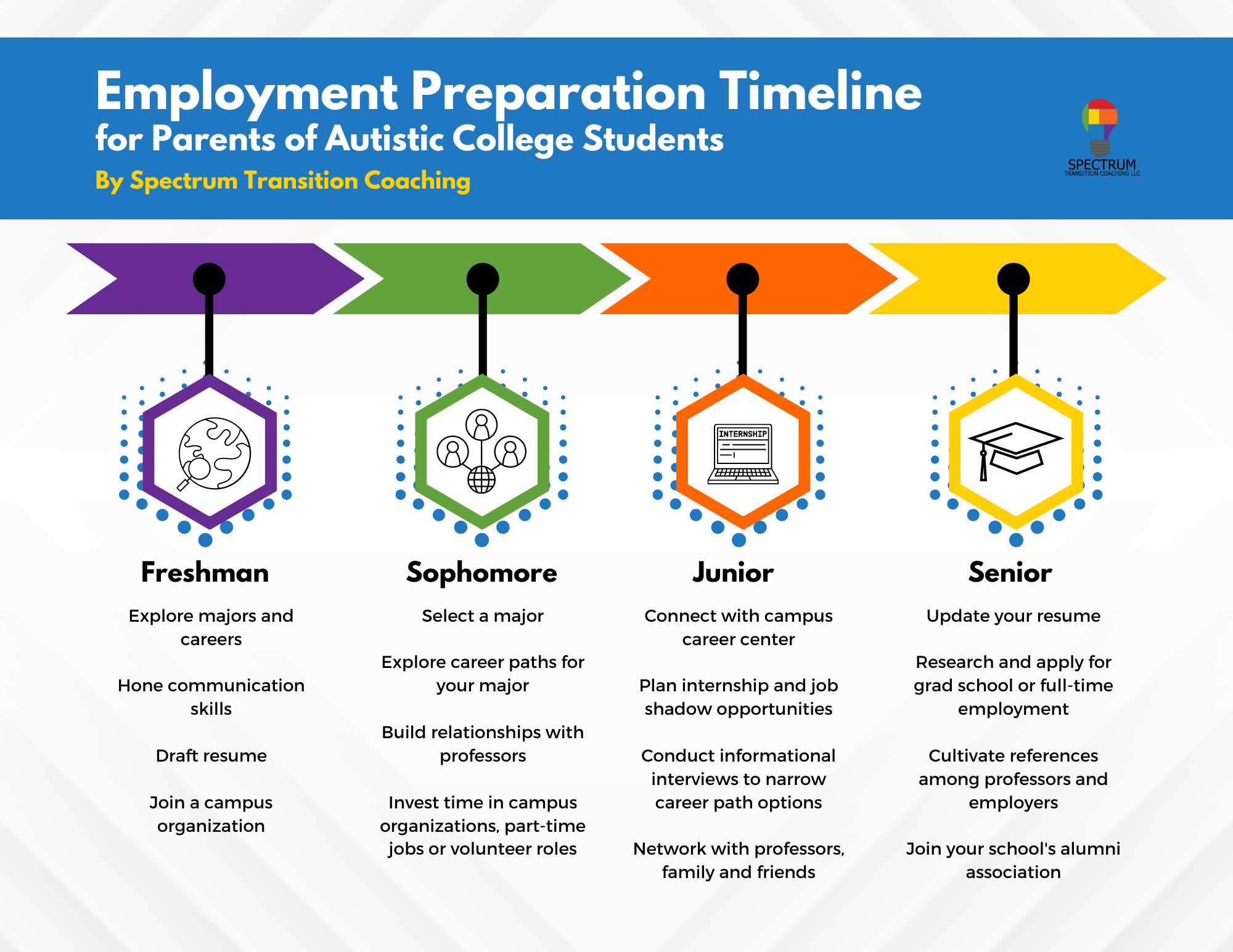
Employment Resources
With job postings and neurdivergent hiring programs, you can find jobs at major companies like Ford, EY, Deloitte and Google as well as neurdovergent-focused companies like Blue Star Recyclers, Good Foot Delivery and Moji Coffee.
For college students exploring potential career paths, My Next Move has a variety of information and assessments to help you discover fulfilling career paths.
About Spectrum Transition Coaching
Helping families of autistic young adults navigate college, career, and life transitions
“Beth is wonderful. She really helped push some of the more difficult conversations between me and my son as he gets ready to leave the nest. Beth met both of us where we were, and are, in this process, and did so in the kindest and least judgmental way. She sees autism as a fact, not a disability, and her practical advice and encouragement will go far. Highly recommend!”
– Cece, parent of autistic young adult
Featured Practitioners
- Impact Parents: Help for parents raising complex kids and teens, Impact Parents offers Sanity School programs for parents and small group or private coaching.
- Eric Endlich, Ph.D.: Founder of Top College Consultants and Professional Member of the Independent Educational Consultants Association (IECA)
- Eric Jorgensen: Advocate for diability planning and founder of True North Disability Planning
- Frances Shefter:Education Attorney and Advocate at Shefter Law, founder of Stress-Free IEP™.
- Michelle McAnaney: College admissions consultant and founder of the The College Spy
